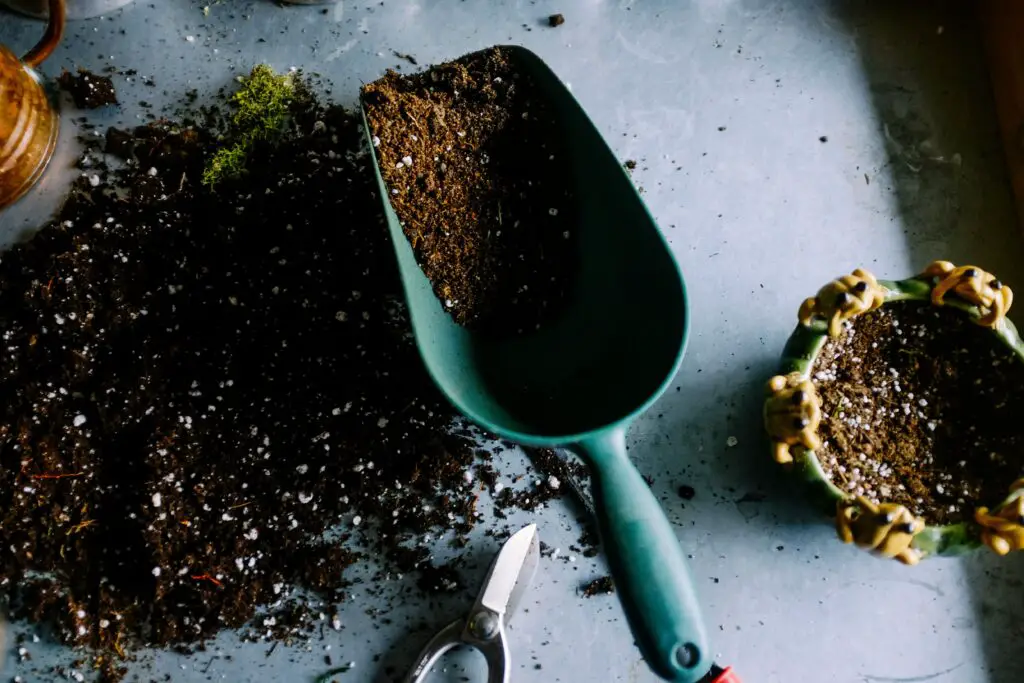Contents
Can I Put Compost In The Freezer? – Introduction:
As the popularity of composting continues to grow, enthusiasts seek innovative ways to optimize the process and address common challenges such as odors and pests. Among the unconventional approaches is the notion of placing compost materials in the freezer, a practice purported to control odors, deter pests, and potentially accelerate decomposition. In this comprehensive exploration, we’ll delve into the potential benefits and drawbacks of freezing compost and whether it holds merit in the world of home composting.
The Freezer and Composting: A Closer Look
Composting is essentially a microbial ballet, where bacteria, fungi, and other microorganisms collaborate to break down organic matter into nutrient-rich compost. The freezer, with its cold temperatures, introduces an intriguing twist to this dance. Let’s explore the potential advantages and disadvantages of employing the freezer as a tool in the composting journey.
Benefits of Freezing Compost Materials:
1. Odor Control: One of the persistent challenges in home composting is managing unpleasant odors, especially in kitchens. The cold temperatures of the freezer can slow down the activity of odor-producing bacteria, providing a temporary solution for households sensitive to compost-related smells.
2. Pest Prevention: Pests, such as fruit flies and gnats, can be a common concern in compost bins. Freezing compost materials can act as a deterrent, disrupting the life cycle of these insects and reducing the likelihood of infestations in your composting system.
3. Accelerated Decomposition: Proponents of freezing compost argue that the cold environment can rupture plant cell walls, potentially facilitating faster decomposition when the materials thaw. This idea suggests that frozen materials may break down more readily when added to the compost bin.
Drawbacks and Considerations:
1. Microbial Activity Disruption: Composting relies on the continuous activity of microorganisms, which thrive in warm and moist conditions. Freezing compost materials may temporarily halt microbial activity, disrupting the balance of the composting ecosystem and potentially slowing down the decomposition process.
2. Space Constraints: The kitchen freezer is a valuable and often limited space. Allocating room for compost materials might not be practical, especially for households with limited freezer space or those striving to efficiently utilize their kitchen storage.
3. Thawing Challenges: Once compost materials are frozen, they need to thaw before being added to the compost bin. Thawing can be time-consuming, and the moisture released during the process may contribute to a soggy environment in the compost bin, potentially leading to anaerobic conditions.
4. Energy Consumption: The continuous energy consumption required to keep compost materials frozen is a noteworthy consideration. Individuals aiming to reduce their carbon footprint may find that the energy used to freeze compost materials outweighs the potential benefits.
Exploring Alternative Composting Practices:
While the freezer may offer temporary relief for specific composting challenges, alternative practices can provide more sustainable and efficient solutions. These practices include:
– Proper Layering: Layering green and brown materials in the compost bin helps maintain the necessary balance of nitrogen and carbon, promoting effective decomposition.
– Regular Turning: Regularly turning the compost aerates the pile, enhancing microbial activity and preventing the formation of anaerobic conditions.
– Well-Designed Compost Bin: Investing in a well-designed compost bin with adequate aeration and drainage features can contribute to a healthier composting environment.
– Balanced Ingredients: Ensuring a balanced mix of green and brown materials, along with sufficient moisture, creates an optimal environment for composting.
While the concept of freezing compost materials introduces intriguing possibilities for odor control and pest prevention, it comes with significant considerations and potential drawbacks. The disruption of microbial activity, space constraints, thawing challenges, and energy consumption are critical factors to weigh against the perceived benefits.
As the world of composting evolves, enthusiasts are encouraged to explore alternative methods that align with the principles of effective composting while minimizing energy consumption and maximizing the benefits for their gardens. Sustainable composting is a delicate balance, and understanding the intricacies of the composting dance can lead to more successful and environmentally friendly waste management practices.
its difficult to compost in the freezer: https://m.youtube.com/watch?v=iUTSpbV1AZg&pp=ygUhQ2FuIEkgUHV0IENvbXBvc3QgSW4gVGhlIEZyZWV6ZXI_
Conclusion:
In the dynamic realm of composting, the idea of utilizing the freezer as a tool has been explored for its potential benefits in odor control, pest prevention, and even accelerated decomposition. However, as we navigate the intricacies of sustainable waste management, it becomes evident that freezing compost materials introduces a set of challenges and considerations that require careful evaluation.
While the freezer may provide a temporary solution to mitigate compost-related odors and deter pests, it comes with drawbacks such as the disruption of microbial activity, space constraints, thawing challenges, and increased energy consumption. The intricate microbial ballet that defines successful composting relies on a delicate balance of warmth, moisture, and aeration—factors that freezing may compromise.
As composting enthusiasts seek efficient and environmentally friendly waste management practices, it is crucial to explore alternative methods that align with the fundamental principles of composting. Practices such as proper layering, regular turning, investing in well-designed compost bins, and maintaining a balanced mix of ingredients offer more sustainable and holistic solutions.
In the grand choreography of composting, where microorganisms play the lead role in transforming kitchen waste into valuable compost, understanding and respecting the natural processes involved is key. While the freezer may provide a brief interlude, the harmony of composting thrives in a balanced and nurturing environment that considers both the needs of the waste materials and the intricate dance of the composting microbes. Ultimately, as we continue to refine our composting practices, the freezer stands as just one note in the symphony of sustainable waste management, encouraging us to explore, learn, and choreograph a greener future for our gardens and the planet.
More Links :
Is rinse rice water good for plants? amazing facts you must know in 2024.: https://ecosustainity.com/is-rinse-rice-water-good-for-plants-amazing-facts-you-must-know-in-2024/
Alternative to Weed Eater: A Comprehensive Exploration of Alternatives for Efficient and Sustainable Lawn Maintenance: https://ecosustainity.com/alternative-to-weed-eater/
Alternative To String Trimmer: Beyond the Buzz:https://ecosustainity.com/alternative-to-string-trimmer/

